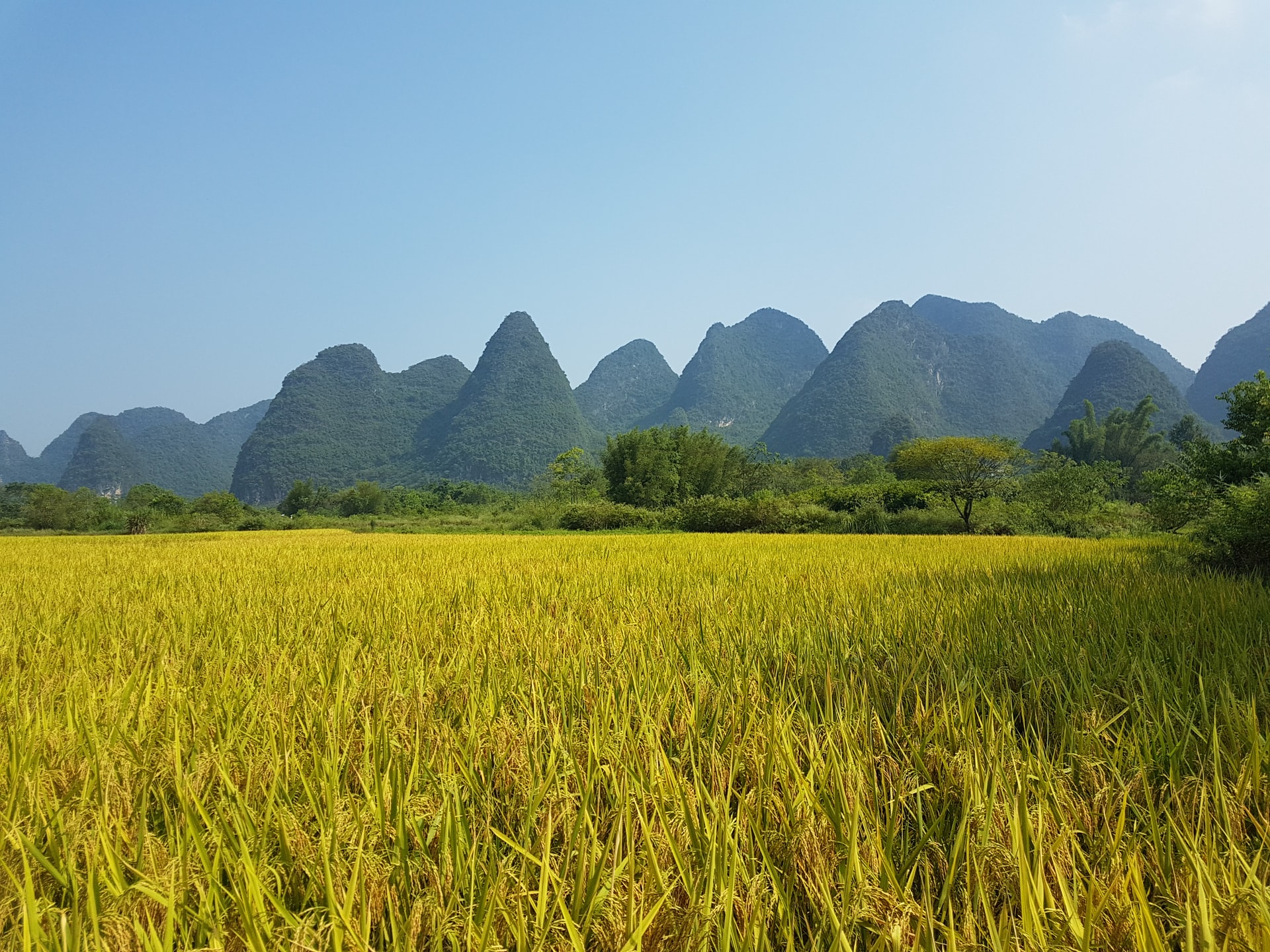
October 26, 2021, by Lexi Earl
Identifying heat tolerant rice varieties to maintain future food security
Rising temperatures are forcing scientists to develop heat tolerant varieties, but this takes time. Policymakers must commit to emissions reductions now, in order to avoid future food insecurity, writes Jordan Robson
Global warming is undeniably a huge issue. Average temperatures have been rising steadily since the industrial revolution, and have risen significantly since the 1950s. Temperatures are predicted to continue rising, with increased occurrence of extreme high temperature events more likely in the future. This is a disaster for natural ecosystems and cultivated crops around the world. High temperatures affect every stage of plant growth and development, leading to substantial harvest losses. For rice, every 1°C increase above the minimum temperature in the dry season equates to a 10% loss in yield. Given that over half of the world’s population relies on rice as staple food, this presents a big problem for global food security. We need heat tolerant rice.

Rice paddy in Malaysia
As part of the Palaeobenchmarking Resilient Agricultural Systems project, working within the department of Plant and Crop Sciences, we are developing climate-ready crops to better cope with global warming. My own research uses a new high-throughput method to screen crops for natural heat tolerance. How does it work? A bit of sunshine is good for everyone, and plants are no different: chlorophyll within the leaf absorbs light to drive photosynthesis, but some of this light is re-emitted. This re-emitted light, known as chlorophyll fluorescence, can tell us how healthy the plant’s photosynthetic machinery is. Photosynthesis is one of the first processes to be disturbed by environmental stress, and is particularly susceptible to heat. By increasing the temperature of small leaf sections and measuring chlorophyll fluorescence we can assess the critical temperature at which the photosynthetic machinery can no longer function. This technique enables us to rapidly screen hundreds of plants within a matter of hours.

Rice grains. Photograph by Zoe Wilson
We have successfully screened two sub-populations of Asian and African rice which are closely related to their wild relatives and harbour great genetic diversity for stress tolerance. Using genome-wide association studies (GWAS) to search for links between heat tolerant varieties and genetic variation within these populations, we have identified new genetic resources which will enable breeders to create resilient rice varieties. This method, and the information generated in rice, can be applied to other crop species, potentially increasing heat tolerance in a multitude of staple food crops like wheat, maize, and soybean.
Our research will go some way in mitigating yield losses in response to global warming. But breeding new varieties takes time, time during which temperatures are continuing to rise and crop yields are under threat. Something needs to change quickly. Policymakers must take immediate action to reduce global emissions and limit the extent of future temperature rises. The two weeks of COP26 are the perfect time to commit to making these changes, and ensure they are written into policy to be enacted.
References:
Cubry et al. (2020). Genome Wide Association Study Pinpoints Key Agronomic QTLs in African Rice Oryza glaberrima. Rice, 13(1), 1–12. https://doi.org/10.1186/s12284-020-00424-1
Ferguson et al. (2020). Rapid temperature responses of photosystem II efficiency forecast genotypic variation in rice vegetative heat tolerance. Plant Journal, 104(3), 839–855. https://doi.org/10.1111/tpj.14956
IPCC. (2021). Climate Change 2021: The Physical Science Basis. Contribution of Working Group I to the Sixth Assessment Report of the Intergovernmental Panel on Climate Change. Cambridge University Press. In Press
Norton et al. (2018). Genome wide association mapping of grain and straw biomass traits in the rice bengal and assam aus panel (baap) grown under alternate wetting and drying and permanently flooded irrigation. Frontiers in Plant Science, 9(September), 1–18. https://doi.org/10.3389/fpls.2018.01223
Peng et al. (2004). Rice yields decline with higher night temperature from global warming. Proceedings of the National Academy of Sciences of the United States of America, 101(27), 9971–9975. https://doi.org/10.1073/pnas.0403720101
Jordan Robson is a postdoctoral fellow on the Palaeobenchmarking Resilient Agricultural Systems project. Prior to this Jordan completed her PhD on the effect of abiotic stress on plant reproduction at the University of Nottingham. Her expertise is in molecular biology, genetics and bioinformatics, using model plants and crops.
Follow Jordan on Twitter @JordanKRobson
No comments yet, fill out a comment to be the first

Leave a Reply